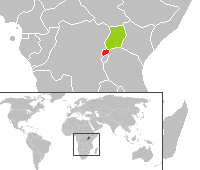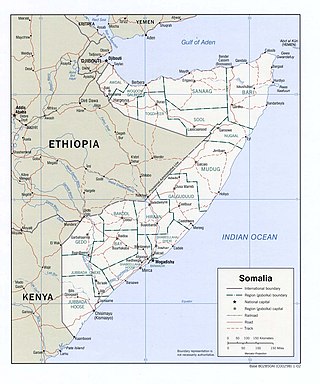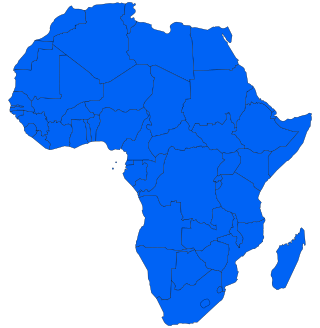
United Nations Security Council resolution 621, adopted unanimously on 20 September 1988, after hearing a joint report by the Secretary-General and Organisation of African Unity (OAU), the Council noted an agreement between Morocco and the Frente Polisario on 30 August 1988 to the joint proposals by the Secretary-General and OAU.

United Nations Security Council resolution 812, adopted unanimously on 12 March 1993, after expressing its alarm at the humanitarian situation in Rwanda due to the ongoing civil war, in particular the number of refugees and displaced persons which posed an international threat to peace and security, the Council called upon the Government of Rwanda, the National Republican Movement for Democracy and Development, and the Rwandan Patriotic Front to respect a ceasefire that took place on 9 March 1993 and implement other agreements they had committed themselves to. It was the first resolution on the situation in Rwanda.

United Nations Security Council resolution 846, adopted unanimously on 22 June 1993, after reaffirming Resolution 812 (1993) on the situation in Rwanda and noting a report by the Secretary-General Boutros Boutros-Ghali, the council established the United Nations Observer Mission Uganda–Rwanda (UNOMUR) for an initial period of six months.

United Nations Security Council resolution 885, adopted unanimously on 16 November 1993, after reaffirming resolutions 733 (1992), 746 (1992), 751 (1992), 767 (1992), 775 (1992), 794 (1992), 814 (1993), 837 (1993), 865 (1993) and 878 (1993) on Somalia and Resolution 868 (1993) on the safety of United Nations peacekeeping personnel, the council authorised the establishment of a Commission of Inquiry to investigate attacks on the United Nations Operation in Somalia II which led to casualties.

United Nations Security Council resolution 903, adopted unanimously on 16 March 1994, after reaffirming Resolution 696 (1991) and all subsequent resolutions on Angola, the Council strengthened and extended the mandate of the United Nations Angola Verification Mission II until 31 May 1994.

United Nations Security Council resolution 1044, adopted unanimously on 31 January 1996, after noting the assassination attempt on President of Egypt Hosni Mubarak at an Organisation of African Unity (OAU) summit in the Ethiopian capital Addis Ababa on 26 June 1995, demanded that the Government of Sudan comply with OAU requests to extradite suspects sheltered in the country to Ethiopia.

United Nations Security Council resolution 1054, adopted on 26 April 1996, after reaffirming Resolution 1044 (1996) concerning the assassination attempt on Egyptian President Hosni Mubarak at an Organisation of African Unity (OAU) summit in the Ethiopian capital Addis Ababa on 26 June 1995, the Council placed sanctions on the Government of Sudan after its failure to comply with OAU requests to extradite suspects sheltered in the country to Ethiopia.

United Nations Security Council resolution 1070, adopted on 16 August 1996, after reaffirming resolutions 1044 (1996) and 1054 (1996) concerning the assassination attempt on Egyptian President Hosni Mubarak at an Organisation of African Unity (OAU) summit in the Ethiopian capital Addis Ababa on 26 June 1995 and subsequent sanctions, the Council placed aviation sanctions on the Government of Sudan after its failure to comply with OAU requests to extradite suspects sheltered in the country to Ethiopia.

United Nations Security Council resolution 1078, adopted unanimously on 9 November 1996, after expressing concern at the situation in the African Great Lakes region, the Council discussed proposals for a regional conference on security and a multinational humanitarian force in eastern Zaire.

United Nations Security Council resolution 1170, adopted unanimously on 27 May 1998, after considering the situation across the African continent, the Council decided to establish an ad hoc Working Group to review the Secretary-General Kofi Annan's recommendations concerning the maintenance of international peace and security in Africa.

United Nations Security Council resolution 1177, adopted unanimously on 26 June 1998, after recognising the deteriorating situation between Eritrea and Ethiopia, the Council condemned the outbreak of war and demanded an immediate ceasefire in their border dispute.

The United Nations Security Council resolution 1196 was adopted unanimously on 16 September 1998, after recalling Resolution 1170 (1998) on Africa; the Council discussed the importance of strengthening the effectiveness of arms embargoes in place in several countries across the continent.

United Nations Security Council resolution 1197, adopted unanimously on 18 September 1998, after reaffirming its primary responsibility to maintain international peace and security, the Council addressed co-operation efforts with the Organisation of African Unity (OAU).

United Nations Security Council resolution 1208, adopted unanimously on 19 November 1998, after recalling Resolution 1170 (1998) on Africa, the Council discussed the treatment and status of refugees on the continent.

United Nations Security Council resolution 1226, adopted unanimously on 29 January 1999, after reaffirming Resolution 1177 (1998) on the situation between Eritrea and Ethiopia, the Council strongly urged Eritrea to accept an agreement proposed by the Organisation of African Unity (OAU) to resolve the conflict between the two countries.

United Nations Security Council resolution 1227, adopted unanimously on 10 February 1999, after reaffirming resolutions 1177 (1998) and 1226 (1999) on the situation between Eritrea and Ethiopia, the Council demanded an immediate cessation of hostilities between the two countries.

United Nations Security Council resolution 1297 was adopted unanimously on 12 May 2000, after reaffirming resolutions 1177 (1998), 1226 (1999) and 1227 (1999) on the situation between Eritrea and Ethiopia. The Council demanded an immediate end to hostilities between the two countries.
United Nations Security Council resolution 1312, adopted unanimously on 31 July 2000, after reaffirming resolutions 1298 (1999) on the situation between Eritrea and Ethiopia, and 1308 (2000), the council established the United Nations Mission in Ethiopia and Eritrea (UNMEE) in anticipation of a peacekeeping operation subject to future authorisation.

United Nations Security Council resolution 1372, adopted on 28 September 2001, after recalling resolutions 1044 (1996), 1054 (1996) and 1070 (1996) concerning the assassination attempt on Egyptian President Hosni Mubarak at an Organisation of African Unity (OAU) summit in the Ethiopian capital Addis Ababa on 26 June 1995 and subsequent measures, the Council noted compliance by Sudan and terminated sanctions against the country.
Events in the year 1999 in Eritrea.
















